ABOUT THE PRODUCTION:
Jernej Lorenci, Slovenian theatre director
Why do we like being either complete heroes or complete victims?
Slovenian author Jernej Lorenci, one of the most renowned theatre directors in the region, is preparing his first Belgrade performance.
By: Marija Krtinić
Belgrade, 11th June, 2017
The Project “Epika Balkanika”, based on Serbian epic poetry, is a co-production of the National Theatre in Belgrade and Bitef Theatre and is scheduled to open at 51st Bitef. The festival audience has already had a chance to see this author’s works - “The Tempest”, “The Crazy Locomotive”, “The Iliad”, some of which have been awarded at this festival. Lorenci is considered one of the most prolific Slovenian directors, and among more than 40 performances he has made so far (“Antigone”, “Medea”, “Don Juan”, “Othello”), many are inspired by ancient stories and myths. One of the latest examples is “The Bible” he has recently staged at the Slovenian National Theatre. We have spoken with him about the myth and its impact on our understanding of the past and the present.
“Epika Balkanica” is going to be the first performance you have directed in Belgrade. Could you tell us more about it - which works of Serbian epic poetry will it be based on and what will be your basic plotline?
- The final selection will be made together with actors and associates. I would first like to hear how those texts sound, the interpretation they offer, the imagination they stir, the emotion they provoke. What I already do know for sure, however, are the topics I am interested in: beauty and strength of the (old) poetry, the relationship between the hero and the victim and what it is that makes us desire to be complete heroes or complete victims, and how thin is the line between the two positions, to which extent the past influences the present and why it can become (self-)murderous, the cruelty and love too, of course. It will be interesting by all means.
Are you going to touch upon the epic poetry by other peoples on the Balkan, explore other viewpoints on the same heroes and events?
-No. But we are, however, going to play with the opposing notions of old - young, female - male, individual - community, speech - song, illusion - allusion.
Do you think that being a Slovenian puts you in a favorable or an unfavorable position when it comes to exploring this topic? To which extent have you had a chance to read epic poetry from the Balkans and do you find it important for your own Pan-Slavic roots, too?
- As a Slovenian, I am in a huge advantage with numerous disadvantages. Not knowing the context of the stories makes me more liberated and less infected by them, although the context will, on some level, be as important as the text itself. Hopefully, the actors and the rest of the team will help me with the context. That will be my first encounter with epic poetry of the Balkans, in practice at least. And yes, I do find them extremely important, not only because I am a Slav. Folk heritage conceals a wondrous beauty and immediacy, it has a strong rhythm which resembles the rhythm of love and death.
The importance of Serbian epic heritage reaches beyond Serbian literature. In Serbia, it is used to explain history, it shapes religious life, creates political ideologies… What can folk songs reveal about certain people?
- They can speak of the greatness and longevity of a people, they are a treasury of its genotype, they create the feeling of belonging, a sort of safety and togetherness, and yet, on the other side, they can be the source of fascism and evil.
What happens if myth is perceived as a given truth, if we keep shaping our past and future according to folk songs, centuries after their inception?
- Then disaster strikes. All destructive societies invariably refer to the past - the real and the mythical one. That leads to the confusion between the reality and the myth and the destruction follows.
You have often dealt with myths in your works - from “Antigone”, “Medea”, “The Oresteia”, to “Epic of Gilgamesh”, “The Iliad”, and even “The Bible”. What makes you so interested in those big stories which represent the cornerstones of European civilization?
- I cannot pinpoint my exact motives but it has been a while since I became obsessed with those ancient tales, those first documents of humanity. They offer some of the most beautiful and wonderfully painful testimonies of human immutability, of the constancy of man’s desires and frustrations, his search for the meaning, his attempt to overcome loneliness, to build his own ego, the topics of death and the eternity, of love and hate, etc. And the way all those stories are written is amazing, almost carnal. All of that makes me wonder to which extent they can become our own, contemporary, to which extent they can exert influence, and I don’t mean so much intellectually as physically, rhythmically.
What do all those ancient tales and their heroes tell us about the contemporary European society? How do they affect the consciousness and the morality of a modern man?
- In their own way, they speak of archetypal longings of a man then and now. We haven’t changed much in that respect: power, honor, glory, pain, loneliness, sadness, sorrow. But hardly anyone is reading themor listening to them now. We reach for them when we need them and that is usually for politics, for some vulgar, nationalistic use. And that is sad.
Myths also bring mythical understanding of time which implies perpetual cycles of eternally the same. What is Europe to hope for, then? What is in store for Europe?
- No idea. Sometimes I’m scared. And I’m often angry. And there are many things I do not understand.
What are the modern myths? What would a modern European poet sing of?
- Of Hitler and Che Guevara and of Michael Jordan and of the fall of the Berlin wall. Of antidepressants and Viagra, maybe. Of CERN and Hubble. But he definitely would sing in order to not feel so terribly alone.
THE AUTHORS:
JERNEJ LORENCI (born in 1973 in Maribor, Slovenia) started directing theatre performances as a secondary school student at the Dead Theatre Maribor. Following his graduation production of Antigone by Sophocles in 1996, he obtained his B. A. degree in 1999. In 1997, he co-founded the Maribor Grammar School Theatre School. After he completed his studies, he began gaining experience as a theatre director in Slovenian, Croatian and Bosnian theatres. He was artistic director of the Ptuj City Theatre and received numerous national and international awards. In 2006, he was appointed assistant professor, and in 2007 associate professor of Theatre and Radio Directing at the Academy of Theatre, Radio, Film and Television in Ljubljana. His national and international awards include the following: the Maribor Theatre Festival Award for best production (S. Kane Cleansed, 2002, and The Crazy Locomotive, 2012 - SNT Drama Ljubljana), Grand Prix at the Golden Lion Festival in Umag (S. Kane Cleansed, 2002, SNT Drama Ljubljana), the Best Production Award at the Ex Ponto Festival (The Longing and Death of Sylvia Plath, 2003, Sarajevo War Theatre SARTR in co-production with the B-51 Society from Ljubljana, 2003), three Maribor Theatre Festival awards for best director (The Epic of Gilgamesh, 2006; text adaptation by Nebojša Pop Tasić, SMG, Aeschylus Oresteia, 2009, SNT Drama Ljubljana, and Alexander Nikolayevich Ostrovsky The Storm, 2012; MGL), the Golden Laughter Award for best director at the 35th Zagreb Days of Satire Festival (2011), the best director award at the Belgrade Theatre Festival BITEF, the national Prešeren Fund Award (2014), the Politika Newspaper Prize for best director, awarded at the 49th International Theatre Festival BITEF (Homer The Iliad, 2015; MGL, SNT Drama Ljubljana and Cankarjev dom), the Anđelko Štimac Award for best director at the 23rd International Small Scenes Festival in Rijeka (The Crazy Locomotive, 2016, SNT Drama Ljubljana) and the Golden Laurel Wreath for the best director at the 56th International Theatre Festival MESS Sarajevo (Ubu the King, SNT Drama Ljubljana).
MATIC STARINA was born in Celje on 15th August, 1980. He completed grammar school in Nova Gorica and subsequently studied Dramaturgy at the Academy of Theatre, Radio, Film and Television. As an actor, performer, assistant director, and above all, a dramaturge, he has authored several projects and play script adaptations. He has worked with many prominent Slovenian directors and theatre makers: Jernej Lorenci, Gregor Luštek, Matjaž Farič, Tomi Janežič, Janez Starina, Mala Kline. He has been involved in productions with all major Slovenian cultural institutions: SNT Drama Ljubljana, Ljubljana City Theatre, Cankarjev dom, Slovenian Youth Theatre, Ptuj City Theatre, SNT Nova Gorica, SLG Celje, Zavod Flota, Dance Theatre Ljubljana, EN KNAP GROUP, Ljubljana Festival, Prešeren Theatre Kranj. Internationally, he has worked at the Brno City Theatre, the Croatian National Theatre and the Zagreb Youth Theatre. Tartuffe produced by the latter and directed by Jernej Lorenci won the best production award at the 37th Fadil Hadžič Days of Satire Festival held at the Kerempuh Theatre in Zagreb, and was named the best production of the season 2013 by popular vote (Teatar hr. 2013).
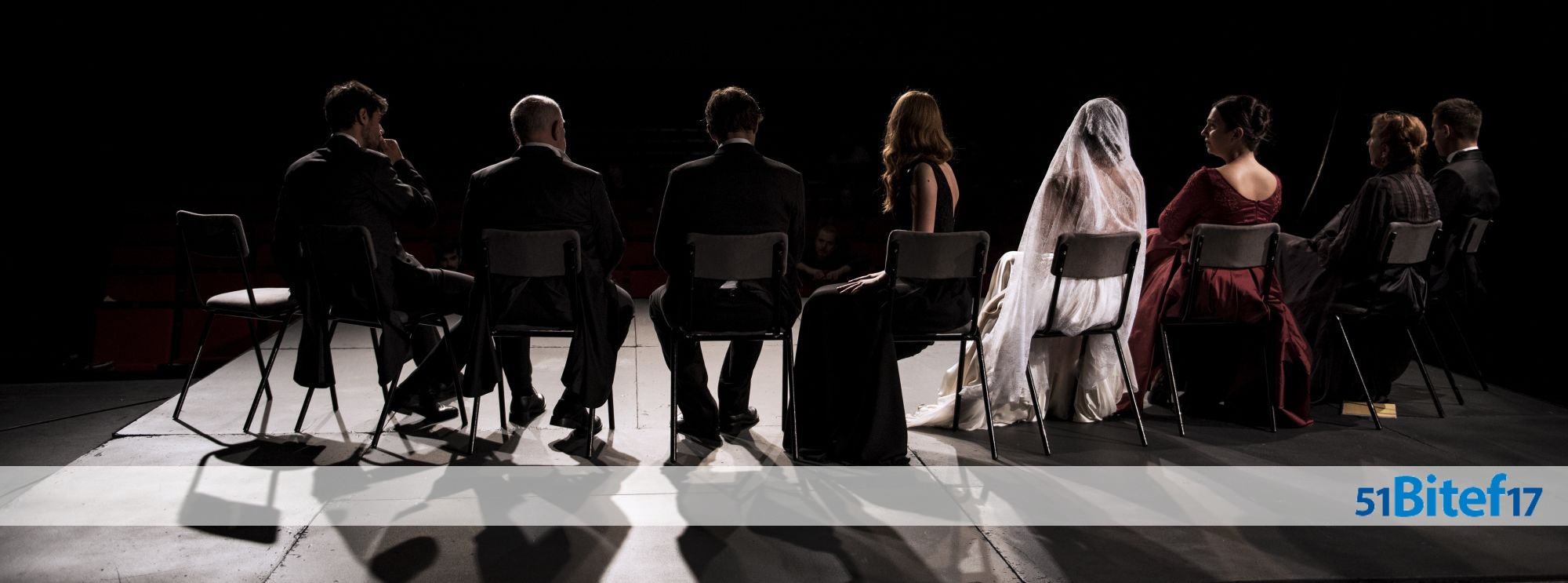








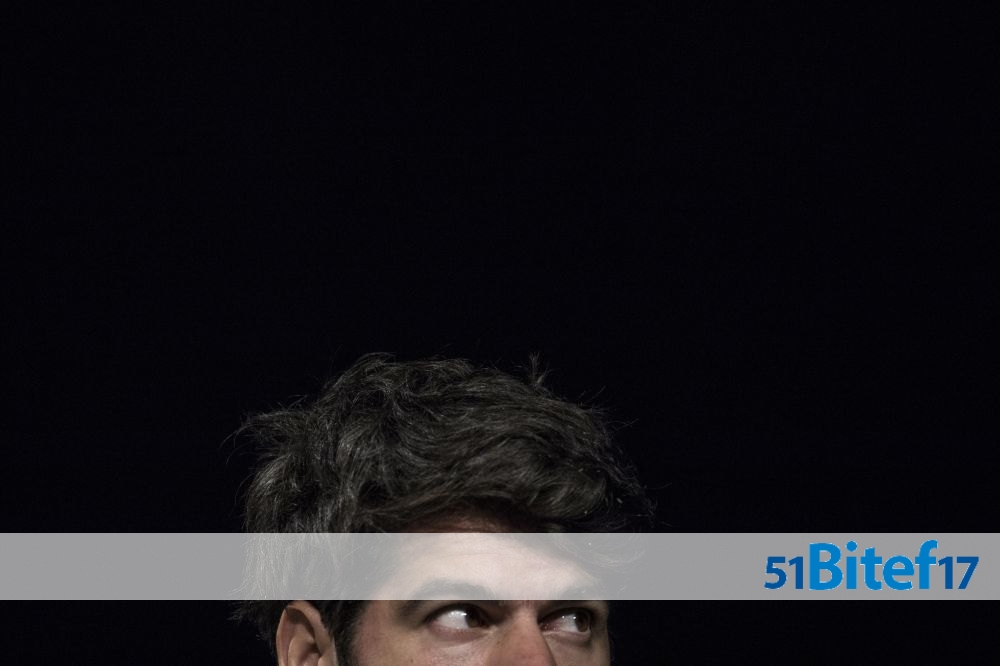

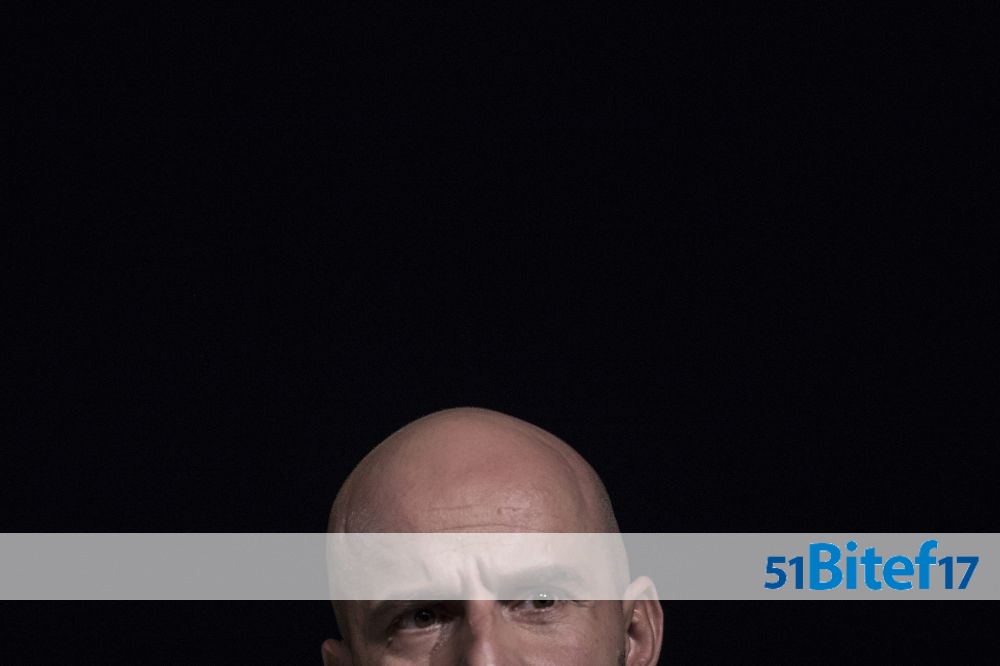

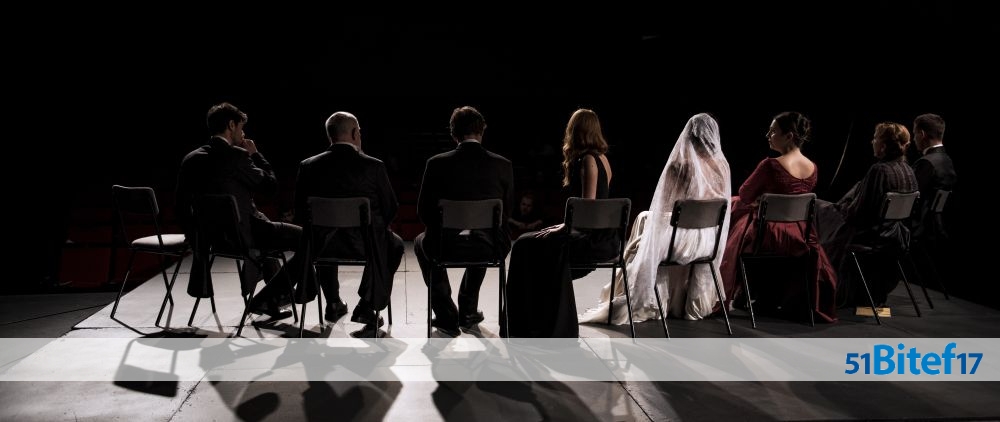
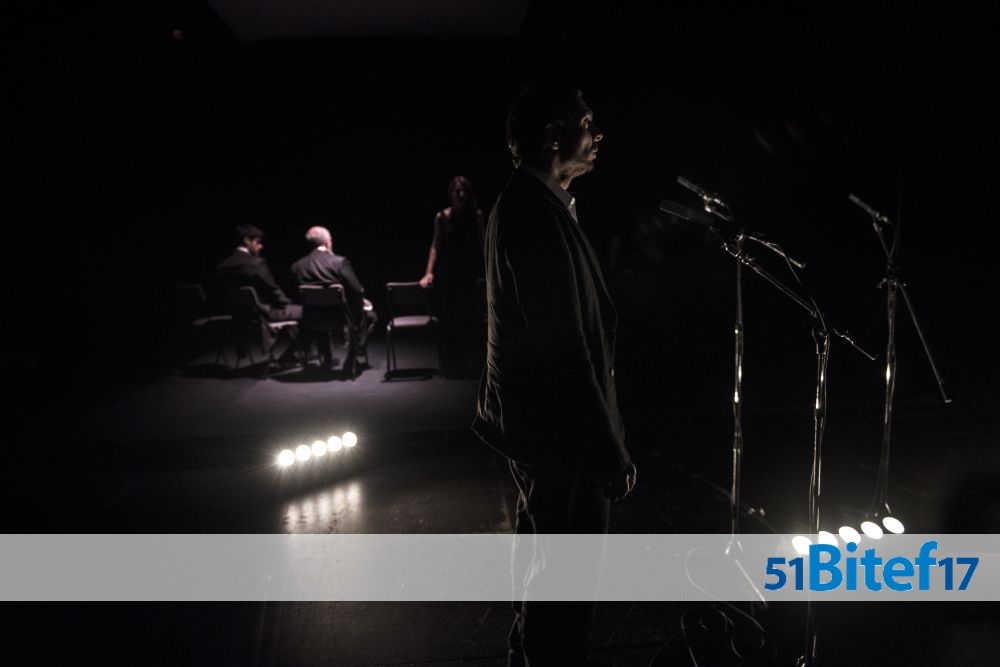

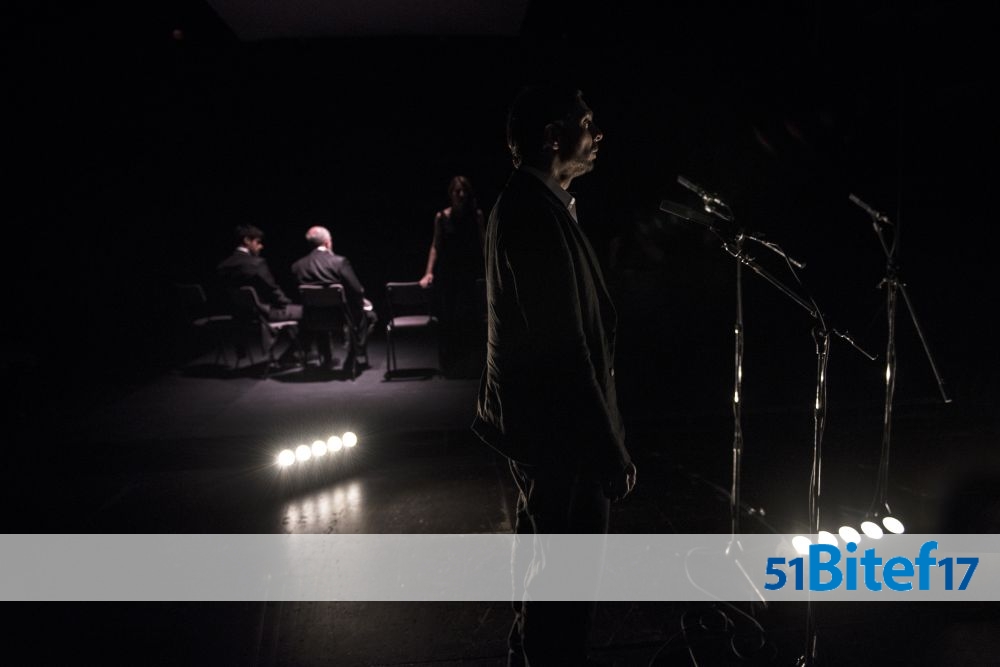

- total votes 0